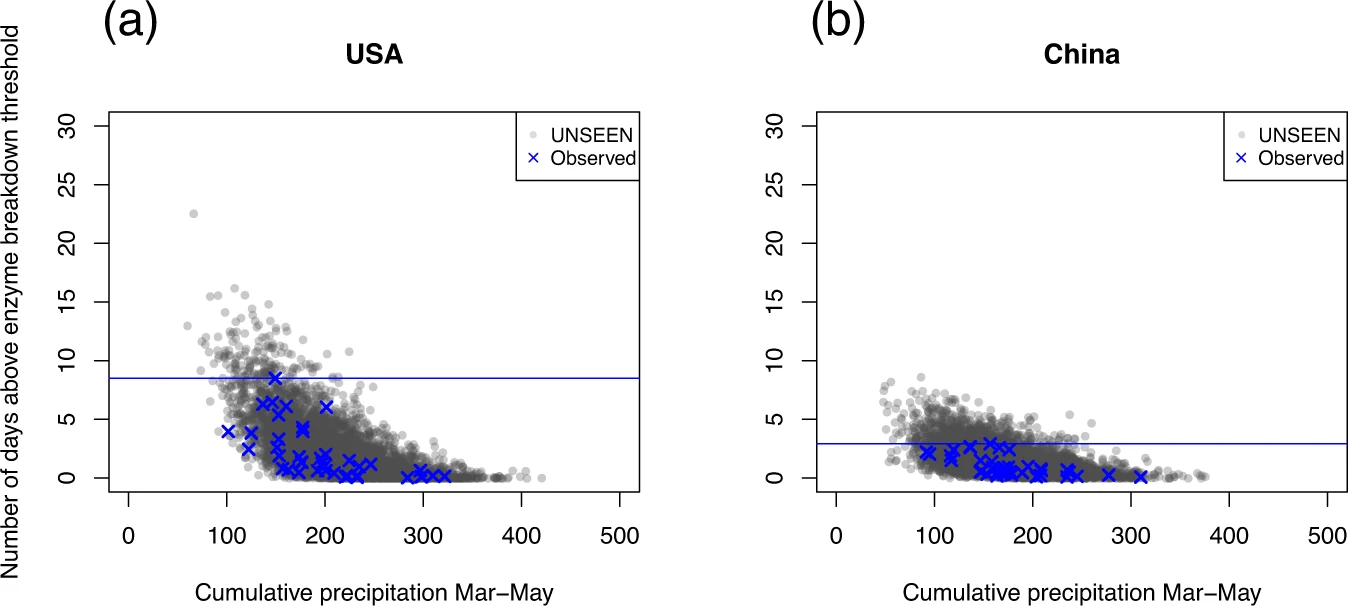June 02, 2023 | npj Climate and Atmospheric Science |
A dedicated team of researchers from Tufts University, Zimbabwe Meteorological Services Department, and Climate Adaptation Services (CAS) in the Netherlands conducted a study that focuses on the unexpected challenges facing wheat crops in important regions of the USA and China.
When it comes to assessing the risk of crop failures, many past studies have relied on historical patterns of climate and crop yields. However, our world is changing due to climate change, and this is leading to entirely new and unpredictable events. These events have the potential to harm our food supply even if they've never occurred before in history. This means that we might not fully understand the risks climate change poses to our food.
In this study, the researchers used a unique approach called "UNprecedented Simulated Extreme ENsemble" (UNSEEN). This method creates thousands of possible extreme climate events that have never happened before and may challenge our crops. They compared these simulated events with the extreme temperatures and rainfall patterns we've seen historically.
What they found is concerning:
- In regions like the US Midwest and China, extreme temperatures that used to be very rare have become much more common. In some cases, the chance of these extreme temperatures happening in any given year has increased dramatically.
- These record-breaking hot years often bring extremely dry conditions, which are harmful to wheat plants.
- The study also showed that strong winds can bring dry air to these regions during extremely hot and dry events, worsening the situation.
In essence, this research highlights the growing unpredictability and increased risk of heatwaves and droughts in wheat-producing regions. These events can seriously harm our food supply. It also emphasizes that relying solely on historical data to understand these risks might not be enough. As our climate continues to change, we need to adapt and prepare for unforeseen challenges in our agriculture, so we can safeguard our food for the future.
Read more: Potential for surprising heat and drought events in wheat-producing regions of USA and China

Fig. 4: Extreme heat vs extreme dryness.
Cumulative precipitation plotted against the number of days crossing the “enzyme breakdown” threshold in March–May for (a) USA and (b) China. UNSEEN ensemble members are plotted in gray, overlaid with observations in blue. The historical record for number of “enzyme breakdown” days is plotted as a blue horizontal line; any gray UNSEEN events above that line are record-breaking.




